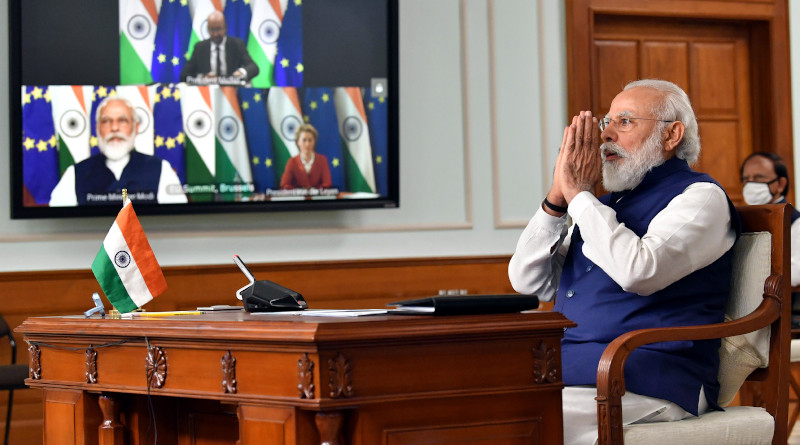Successful EU-India Summit – Analysis
The 15 July summit was deemed ‘very successful’ by both sides. The meeting between Narendra Modi, Charles Michel and Ursula von der Leyen covered a wide range of issues, including energy and climate policy, health, digital, security, human rights – and trade. The atmospherics were ‘good’ with Michel describing India as ‘an indispensable partner.’
A substantial joint political declaration reflected a large convergence of views of global affairs. There was also a joint action plan for the next five years (see below) and, among other deliverables, agreement to establish a new high level dialogue on trade and investment.
Moving ahead on the trade front will not be easy. The EU is India’s largest trade and investment partner. But India represents only about 2% of EU external trade. After a decade of inconclusive FTA negotiations, the talks were suspended in 2017. Since then the two sides have sparred over agriculture, bilateral investment agreements, tariffs on electrical goods and data privacy standards.
India did not join the ad hoc group that the EU sponsored to deal with the breakdown of the WTO dispute settlement system. More recently there have been problems over exports of drugs and other medical products which has prompted a discussion about the need to rebalance supply chains.
Nevertheless, the joint statement aid that ‘The High Level Dialogue will aim at fostering progress on the trade and investment agreements, addressing trade irritants and improving conditions for traders and investors on both sides as well as discuss supply chain linkages.’
Politically there was agreement to increase their cooperation on maritime security and defence, terrorism and cyber threats. China was not mentioned but was clearly at the back of participants’ minds.
On the economic side, the EU was keen to hammer home the message that the global economy recovery after Covid-19 would demand a strengthened multilateral system, a veiled reference to alleged protectionist tendencies by India. Both sides also agreed on the importance of tackling climate change and working together on sustainable modernisation.
Find the text of the road map for 2025 here.

